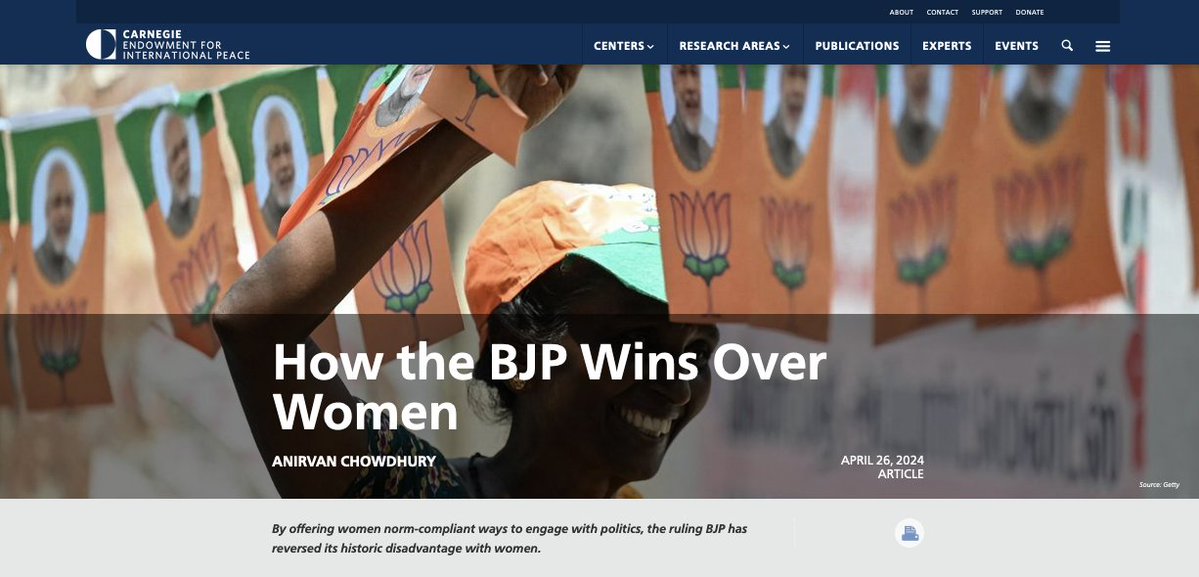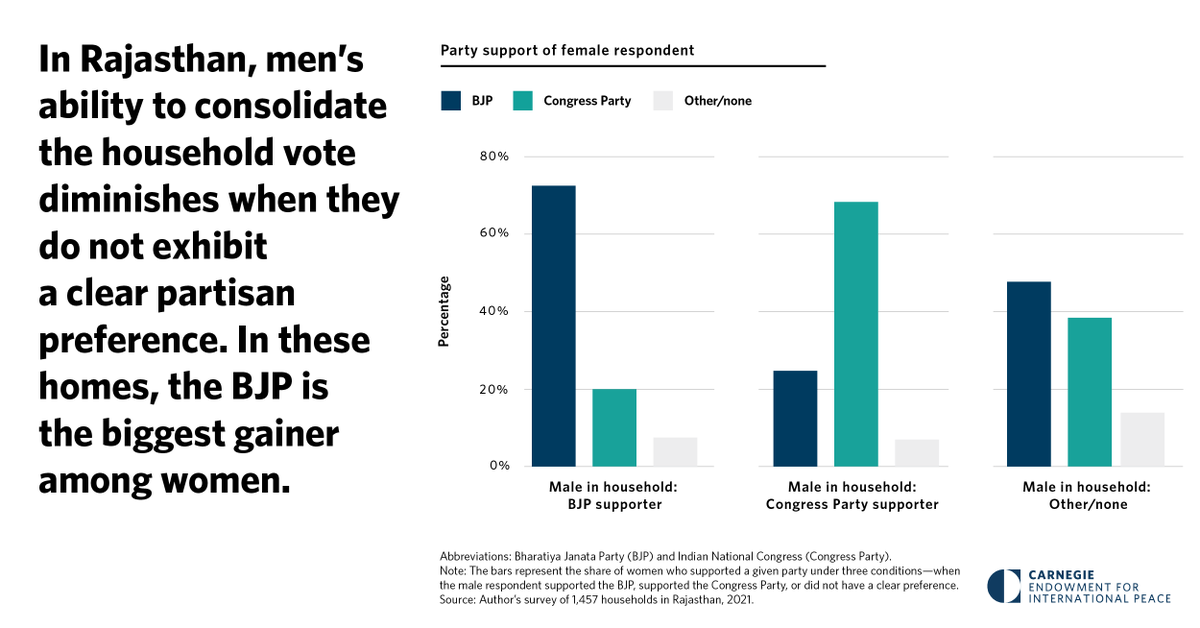🇬🇧🇮🇳 1/ Today, we are releasing a detailed, new study on the political attitudes of British Indians. The Indian diaspora in the United Kingdom is now the largest immigrant group in the country. Yet, we know far too little about their political attitudes. bit.ly/3HwOPZF 

2/ This report—by @CEDuckworth21, Devesh Kapur, and me—draws on a new, nationally representative survey of nearly 800 British Indian eligible voters conducted w/ @YouGov in August 2021. The survey has an overall margin of error of +/- 3.5 percent. 

3/ This report provides an empirically robust and analytically nuanced picture of the attitudes of this increasingly important demographic. Some of our top-line findings follow: 

4/ British Indians demonstrate a modest preference for the Labour Party, but the latter’s historical advantage has eroded. Around 4 in 10 British Indians identify with @UKLabour, while 3 in 10 support the @Conservatives. 

5/ If a snap election were held tomorrow, British Indians could be important swing voters. Among British Indians, Labour enjoys an advantage over the Conservatives in a hypothetical general election, but a significant minority is undecided. 

6/ Related data from the British Election Study (@BESResearch) suggests that there is a clear deterioration in British Indians’ support for the Labour Party. However, while Labour has lost ground over the last decade, the Conservatives have not consistently been the beneficiary. 

7/ Further, British Indian voters are polarized on religious grounds. A majority of Muslim and Sikh respondents would support Labour in a snap election. But, a plurality of Christians and Hindus reports a preference for the Conservatives. 

8/ While respondents do not necessarily perceive a clear partisan advantage in the overall representation of British Indian interests, religion again serves as a dividing line. Indians of different faiths disagree on which party is “closer” to the British Indian community. 

9/ In terms of leadership, British Indians are dissatisfied with @BorisJohnson. In a hypothetical general election, Labour leader @Keir_Starmer emerges as the most popular PM choice, followed closely by @RishiSunak. Home Secretary @pritipatel rates poorly. 

10/ British Indians are preoccupied with the state of the economy and healthcare. Amid an unprecedented pandemic, British Indians are primarily motivated by kitchen table issues. The only other pressing issue that ranks highly is the environment/climate change. 

11/ It would be an exaggeration to state that views on Modi shape the voting behavior of British Indians. At the same time, the data suggest that views on Modi are highly polarized with Conservatives and Hindus demonstrating greater support for his job performance 

12/ There’s much more in the report than can fit in one thread. Here’s a link to the full report: bit.ly/3HwOPZF. (There is a very short executive summary for those who simply want the greatest hits). Huge thanks to our @CarnegieEndow team for making this come to life.
FYI, this might be of interest — @rakibehsan, @nehashah_, @sima_kotecha, @ProfSobolewska, @manojladwa, @kiran_k_m, @sundersays, @ProfRosieCamp, @omaromalleykhan, @Halima_Begum
13/ There seems to be a lot of confusion about how sampling works.
First, we have 792 British Indian respondents (sometimes number is lower due to skips, N/As, etc)
Second, most surveys characterizing how the *entire* British population will vote have around 1000 respondents
First, we have 792 British Indian respondents (sometimes number is lower due to skips, N/As, etc)
Second, most surveys characterizing how the *entire* British population will vote have around 1000 respondents
14/ See, for instance, the polls aggregated by @BritainElects
• • •
Missing some Tweet in this thread? You can try to
force a refresh















